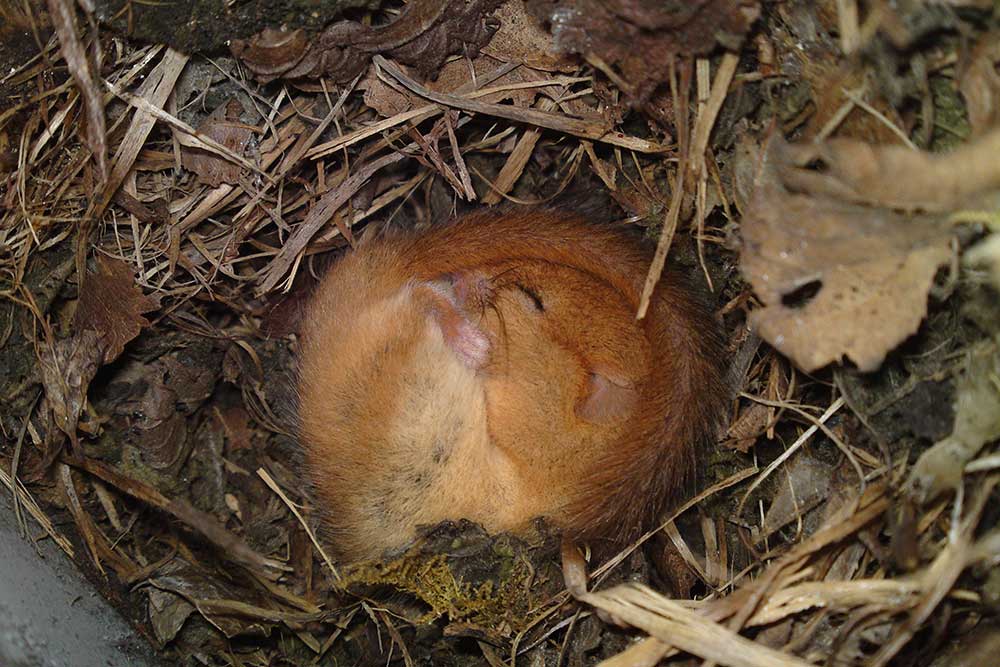Hazel dormice legislation

Legislation
The international status dormice is ‘of least concern’, downgraded from ‘low risk (near threatened) by the IUCN in 2009. The downgrade was mainly because it’s common and widespread in Lithuania with no observed decline. However, in the Netherlands, Sweden, Germany, Denmark and the UK, the decline is evident.
In the UK, dormice are legally protected under Schedule 5 of the Wildlife and Countryside Act 1981 (as amended) and have significant further protection as a European Protected Species under the Conservation of Habitats and Species Regulations 2010 (as amended). In spite this, dormice are declining 5.8% annually which means that here they could classified as ‘Vulnerable’ and possibly ‘Endangered’ under IUCN criteria.
Dormice are also a ‘Species of Principal Importance for the conservation of biodiversity’ listed under section 41 of the Natural Environment and Rural Communities Act 2006 (NERC). Section 40 of the Act places a ‘Biodiversity Duty’ on all public bodies to have regard to the conservation of biodiversity which includes giving consideration to the restoration and enhancement of species and habitats.
The National Planning Policy Framework (NPPF) specifies that local authorities should aim to conserve and enhance ‘biodiversity’ requiring planning policies and applications to ‘promote the preservation, restoration and re-creation of priority habitats, ecological networks and the protection and recovery of priority species populations, linked to national and local targets, and identify suitable indicators for monitoring biodiversity’.
We have been working to save hazel dormice in the UK for over 20 years. Find out about our campaigns and how you can help.
Back to Protection for hazel dormice
